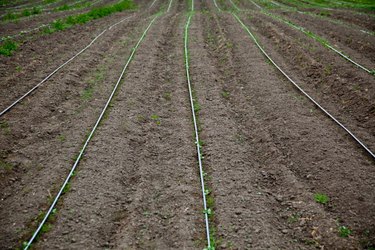
Soil ecosystems contain a diversity of life that is greater than in any other ecosystem, notes the Environmental Literacy Council on its website. Soil performs a number of important functions that contribute to all ecological cycles.
Significance
Video of the Day
Ecological cycles include water, nitrogen, oxygen, biological and geological cycles. Soils play a role in all of these cycles. For example, during the water cycle, soil is responsible for water storage. In the carbon cycle, which can take place over many years, carbon dioxide is stored in the soil, instead of being released into the atmosphere.
Video of the Day
Function
Soil performs crucial functions as an ecosystem. It protects seeds and plants so that they can germinate and grow. Soil holds and releases water, which helps control floods and filter water. Additionally, organisms in soil help to break down manure, plant remains and pesticides so that they do not enter and pollute the water supply.
Fun Facts
Alabama Agriculture in the Classroom notes some soil facts that underscore its importance as an ecosystem. For example, there are more than 70,000 soil varieties in the U.S., and it takes about 100 years for nature to create a single inch of topsoil. It is estimated that between 5 and 10 tons of animal life can live in just one acre of soil.